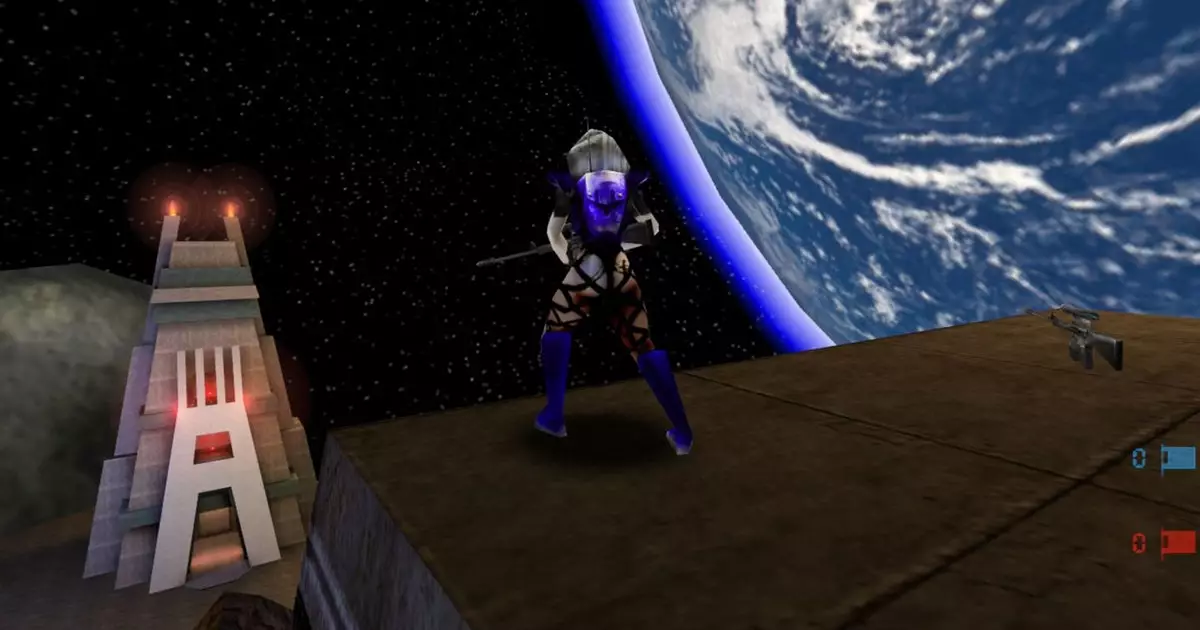In a recent announcement, Epic Games has taken a significant step in preserving video game history by allowing their iconic 1998 title, Unreal, and its multiplayer counterpart, Unreal Tournament, to be hosted on the Internet Archive. This decision marks a pivotal moment not only for fans of the franchise but also for the broader gaming community engaged in preserving digital heritage. By making these titles freely available, Epic Games has not only acknowledged the cultural importance of these games but has also embraced a proactive approach toward ensuring that future generations can experience these early milestones of first-person shooter (FPS) gaming.
Unreal Tournament, a game that came to define and shape the future of multiplayer FPS gaming, is lauded for its fast-paced gameplay and innovative level designs, particularly the iconic Facing Worlds map. Its release heralded a new era of competitive online gaming, influencing numerous franchises that followed. The decision to host these classics online, as noted by the fan group Old Unreal, is an essential move to reinforce the legacy of these games and make them easily accessible. This endeavor highlights the relationship between nostalgia and game preservation, allowing gamers to revisit past experiences and introduce them to new audiences who may not have had the opportunity to enjoy them when they were first launched.
Recognizing that the Internet Archive can be daunting for those unfamiliar with its interface, Old Unreal is stepping in to create simplified installers for both Unreal Gold and Unreal Tournament. These installers serve as a bridge for modern gamers, automatically downloading necessary files and preparing the games for contemporary systems. This user-centered approach demonstrates an awareness of the challenges that older games can present in today’s tech environment and provides an invaluable service to the gaming community.
Epic Games’ decision comes in the wake of a contentious period during which the original Unreal was delisted from Steam, leaving players frustrated as they sought to revisit the title. By clearing the path for these games to be available without cost, Epic has begun to mend relations with its fanbase. While the delisting was a strategic business decision in favor of their own distribution platform, the move to provide free versions of these classic games represents a significant shift towards prioritizing player accessibility over competitive exclusivity.
Additionally, this action connects to the wider trend of gaming companies acknowledging the need for historical preservation. As companies like GOG champion the cause of making older titles accessible on modern machines, Epic’s gesture fosters optimism about the future of gaming preservation initiatives. It reaffirms the idea that video games are not merely products but vital artifacts of cultural impact deserving recognition and care. While Unreal and Unreal Tournament may have originated from the grueling 70-80 hour work weeks endured by developers at the time, their legacy now stands as a testament to the extraordinary creativity and perseverance that defines the industry.
The transition of Unreal and Unreal Tournament to free availability embodies an encouraging trend in the gaming world. It promotes accessibility, respects the past, and invigorates a passion for preservation. As these classics reclaim their place in the hearts of both old and new gamers alike, we can only hope for further endeavors that amplify the significance of digital heritage in the gaming landscape.


Leave a Reply